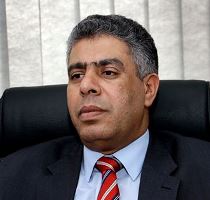We invented “monarcho-fascism”, the Macedonians copied it into textbooks
There is no such hermaphrodite. The aristocracy hates the humiliated far right
The Macedonians declared King Boris III a fascist. He shouldn’t be a patron of our Ohrid cultural center. They are right because we invented the term “monarcho-fascism”. Neighbors copied it into textbooks, memorized it and chanted “Bulgarian fascists!” until today.
The word comes from the so-called “bundle”. A bundle of sticks, which since ancient times in different peoples and cultures personifies unity, strength, will, power. With these same sticks Khan Kubrat teaches a lesson to his children. The inn breaks them one by one and the boys struggle with the whole bundle. That is, the dawn of domestic fascism was already dawning in Kubrat’s Greater Bulgaria.
The Bulgarian People’s Union is called “Kubrat”
Established in 1913, it was active after the wars of national unification. General Boris Sirmanov is a longtime leader. By 1926, the organization had approximately 15,000 members in facilities across the country. Kubratov’s ideology is far right, drawing inspiration from orthodox fascism.
The Union of Bulgarian National Legions is of the same dough. With the leader general Hristo Lukov. It is still debated whether he is a hero or an ordinary fascist. Contemporaries tell the truth. When he was liquidated in 1943, Prime Minister Bogdan Filov’s wife exclaimed: “It is a pity for the handsome and brave general. He was the leader of the fascist legionaries and of course the Communists, perhaps by British order, decided to purge him.”
There were other fascist organizations in our country, the “Bulgarian Fascist” newspaper was also published. However, they have never been in power. This does not prevent the self-proclaimed People’s Court from ousting the greatest fascists on the planet. The court handed down 2,730 death sentences, only 12 were signed in Nuremberg. The goal was the beheading of the nation’s political, military and intellectual elite. To free the territory for the Sovietization of the country.
In the sublimation of darkness
Chief Prosecutor Georgi Petrov exclaimed:
“Gentlemen judges! There is a defendant who has not been placed in the dock, who is not here in the courtroom, but his spirit hovers here and above the disgraced Bulgaria: this is Tsar Boris III. Here is a great guilty before the Bulgarian people who was not put in the dock. If death had not removed him so unexpectedly from the stage of history, he should have been the first and main accused of the People’s Court “.
Boris’s fault is that he saved the country as much as possible from the horrors of World War II. Under pressure from Germany, Bogdan Filov and Foreign Minister Ivan Popov declared war on the United States and England. But behind the king, who scolded them: “You should have resisted, they would have torn your pants and then they would have stripped you *, and you tore them yourself because you also gave them petroleum jelly”.
Once again, at the Tsar’s insistence, Bulgaria did not break off diplomatic relations with the Soviet Union. He did not send an army to the Eastern Front, although Filov insisted on a corps of “volunteers”. From the Gauleiters of Boris Sirmanov and Hristo Lukov.
Marxist historiography has closed its eyes to the facts
Slepeshka forged the incredible “monarcho-fascism” combination. There is no such hermaphrodite. The aristocracy hates the humiliated far right. The assassination of Hitler in 1944 was the work of officers with the prefix “background”. Boris himself attached labels such as “feldfebbel” and “painter” to the Führer.
The apologists of “monarcho-fascism” were scientific luminaries of the greatness of Prof. Ilcho Dimitrov. «The most general division – he analyzed the phenomenon – is between opposition fascism (” ultra “fascism) and government fascism (monarcho-fascism). While the former were companions of a more orthodox fascism and promoted their candidates for the Fuhrer (Tsankov, Lukov), the latter declared the supremacy of the tsar as a constitutional principle and sought to adapt the Nazi doctrine to certain national characteristics and historical traditions.
“Among the monarcho-fascists – continues the professor – there were also differences on some secondary issues. A group centered around the palace (the Tsar, Koseivanov, Popov) had embraced Nazi ideas and a pro-German orientation as a profitable and inevitable option, but at the same time had always tried to have at least one path of retreat. preserved both to the bourgeois opposition in the country and among the Anglo-Americans. Another group – its most fanatical representatives were Filov, Gabrovski, Docho Hristov, Sevov – saw in the fascist reorganization of the state and in the complete adaptation to Germany the only alternative to the socialist revolution “.
The idea of the fascist homeland is still alive
“A handful of unfortunate fascists” called the parliamentarians of the “Vazrazhdane” party Hristo Petrov. Hailed as Itzo Gamble, he played rap, gambled in parliament. That is, by chance, because he doesn’t belong there. Studied and not studied, Petrov suffered from a chronic lack of general culture.
There is nothing to be angry with Macedonians about. They simply quote Ilcho Dimitrov and Hristo Petrov: “Bulgarian Fascists!”
_6267567068064506890_big.jpg)

